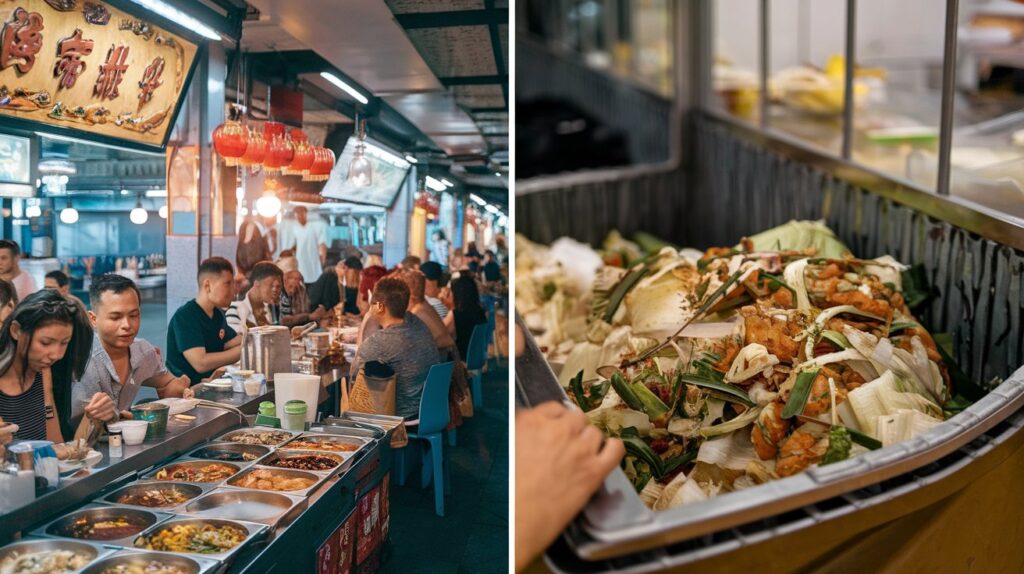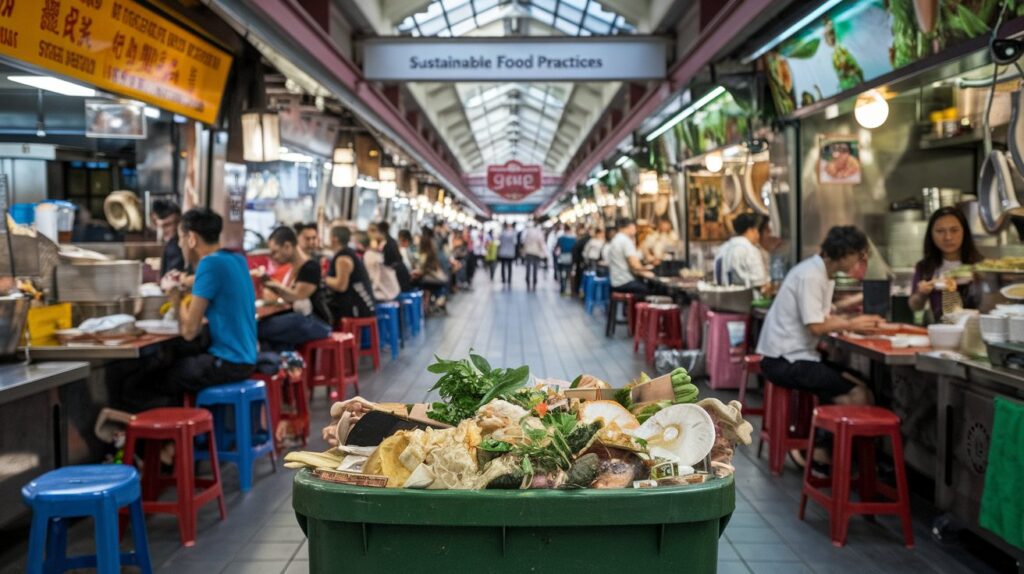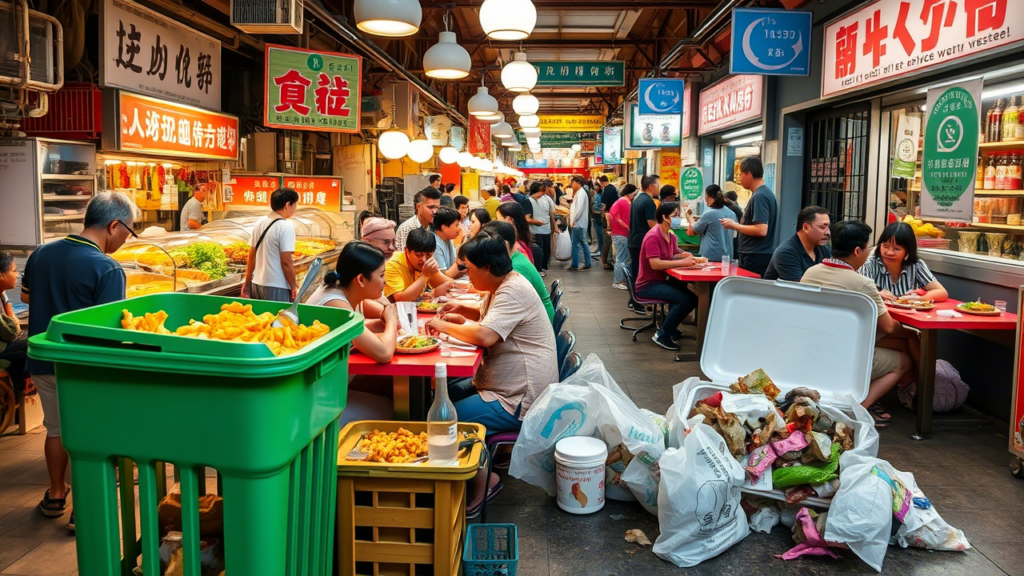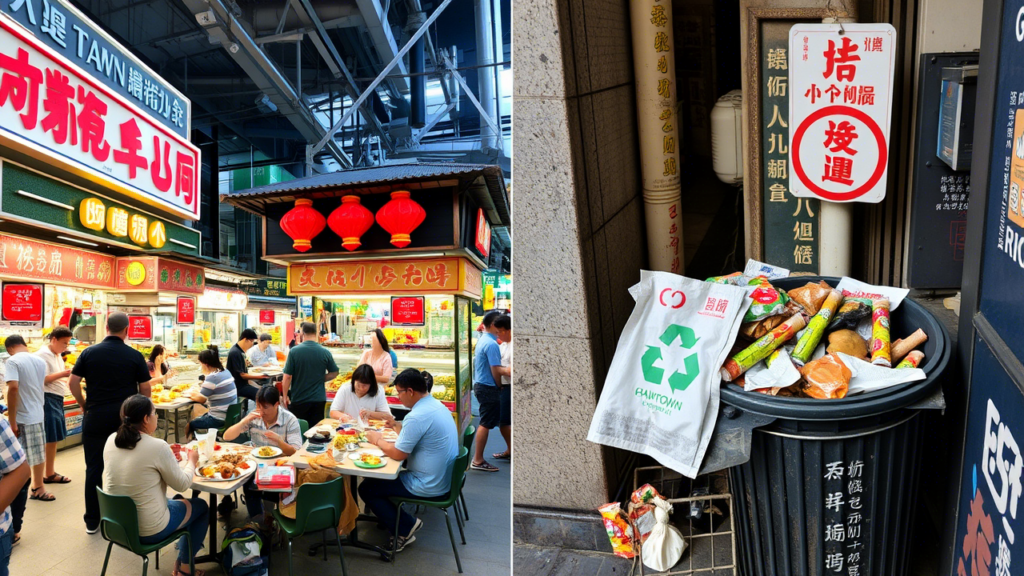Is Eating Leftovers from Chinatown Hawker Centers Safe & Ethical?
Hawker centers are a defining part of Chinatown’s culture, serving affordable and diverse food to both locals and tourists. However, a growing trend of Chinatown hawker leftovers consumption has sparked debate over food waste, hygiene, and ethical concerns. Is this practice a sustainable solution or a risky habit? Let’s dive deep into the topic.
Table of Key Information:
| Aspect | Details |
|---|---|
| Topic | Chinatown Hawker Leftovers Consumption |
| Key Focus | Food Waste, Hygiene, Ethical Concerns, Sustainability |
| Main Concerns | Bacterial Contamination, Ethical Stigma, Health Risks |
| Environmental Impact | Reducing landfill waste, eco-friendly consumption |
| Social Debate | Dignity in food choices, responsible food handling |
| Safety Measures | Proper food storage, reheating guidelines, hygiene standards |
| Best Alternatives | Food donation programs, mindful consumption |

Food Waste Crisis: A Growing Concern
One of the primary drivers of leftover consumption is reducing food waste. Daily, tons of perfectly edible food goes uneaten, contributing to environmental damage. Hawker centers often produce surplus food, which is discarded at closing time, leading to wastefulness in a world where many struggle with food insecurity.
Why does food go to waste?
- Over-preparation of dishes to meet fluctuating demand
- Strict food quality standards that prevent the resale of imperfect items
- Customer leftovers that remain untouched but are thrown away
Reducing waste through responsible consumption can be eco-friendly, preventing unnecessary disposal and promoting sustainability.
Is It Safe to Eat Leftovers from Chinatown Hawker Centers?
While reducing waste is beneficial, food safety remains a significant concern. Bacterial growth in leftover food can pose serious health risks, particularly in warm and humid climates. Some key safety risks include:
- Bacterial Contamination – Food left at room temperature can harbor harmful bacteria such as Salmonella and E. coli.
- Cross-Contamination – Shared tables and eating spaces increase exposure to germs from multiple sources.
- Foodborne Illnesses – Improper storage and reheating can lead to food poisoning, nausea, and stomach infections.

How Can Leftovers Be Made Safe for Consumption?
If someone chooses to consume leftovers, they must follow these guidelines:
- Proper Storage – Refrigerate leftovers promptly at or below 5°C to slow bacterial growth.
- Reheating – Heat food to at least 75°C to kill harmful bacteria before consumption.
- Check for Spoilage – If food smells off, has an unusual texture, or looks moldy, discard it immediately.
Social & Ethical Implications of Leftover Consumption
Consuming leftovers isn’t just about food waste; it raises ethical and social concerns. Some key issues include:
- Food Dignity – While some people consume leftovers out of necessity, others may do so voluntarily. This creates a debate over whether leftover consumption should be normalized or discouraged.
- Exploitation Risks – Some individuals refuse fresh meals but ask for money instead, leading to concerns about potential scams.
- Cultural Stigma – In many societies, eating leftovers carries negative connotations of poverty and desperation, making it a sensitive issue.
Should society encourage leftover consumption? While the intention to reduce waste is commendable, food safety and social dignity should always be prioritized.

Hawker Center Hygiene & Regulations
To ensure cleanliness, many Chinatown hawker centers follow strict health regulations:
- Regular inspections to prevent contamination and uphold hygiene standards
- Proper food handling protocols to ensure leftovers do not mix with fresh food
- Enforcement of disposal rules to discourage leftover consumption by unauthorized individuals
Authorities advise against consuming unknown leftovers due to the potential health risks involved. However, some initiatives focus on redistributing untouched, safe-to-eat food to those in need rather than allowing it to go to waste.
How Can We Reduce Food Waste Responsibly?
If you’re concerned about food waste but hesitant about leftover consumption, consider these eco-friendly alternatives:
- Plan Your Portions – Order only what you can finish to minimize waste.
- Support Food Redistribution Programs – Donate excess food to charities that ensure safe consumption.
- Encourage Sustainable Packaging – Opt for recyclable takeaway containers to reduce environmental harm.
- Educate & Raise Awareness – Promote discussions about food waste, hygiene, and responsible consumption.
Final Thoughts: Should You Eat Chinatown Hawker Leftovers?
While Chinatown hawker leftovers consumption raises valid concerns about food waste and sustainability, the risks associated with hygiene and food safety cannot be ignored. Instead of eating random leftovers, individuals should support structured food redistribution efforts and practice mindful consumption.
The best approach is to reduce waste at the source, ensure food safety, and uphold ethical responsibility. Food should be consumed wisely—not wasted or irresponsibly reused.





